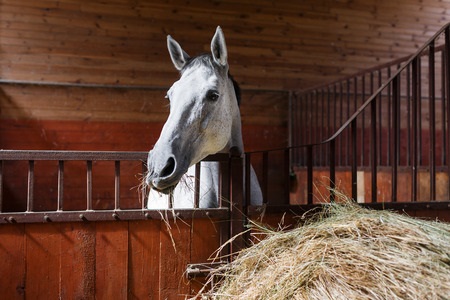Many horse owners used to feed their horses bran mash, especially during colder months.
However, in recent years, bran mash isn’t typically fed to horses and the routine habit has now become an old practice.
Bran mash does not have the health benefits that many horse owners once believed it did for several reasons.
Considering Digestive Systems
The digestive enzymes of a horse will often reflect the diet the horse is fed. If you change the food a horse is consuming, you need to give the digestive bacteria time to regulate the change. If the change is made too quickly, the horse will not able to digest it which causes issues.
Many people used to feed their horse bran mashes once a week because it is rumored to have a “laxative effect.”
- However, randomly integrating bran mashes into a horse’s diet negatively affects their digestive system. The laxative effect of the bran mash was likely caused by a digestive disturbance.
Bran Lacks Nutrition
Wheat bran has a tremendous amount of phosphorous within it. If a horse has a diet that consists of a lot of phosphorous, the horse can suffer from secondary hyperparathyroidism. Many horses suffer from health conditions that were frequently fed wheat bran.
- If your horse is only consuming bran once or twice a week, it’s unlikely that they’d develop health issues.
However, many horse owners avoid feeding their horses’ wheat bran and rice bran in fear of health issues.
Benefits of Bran
Bran does come with some great benefits which is why it was consistently fed to horses for many years. Bran is something that the large majority of horses will eat with minimal refusal.
After a lot of manual labor, horses often suffer from a reduced appetite.
- Some horses also refuse to eat when they are ill. Bran can usually tempt any horse to eat, no matter how they are feeling.
Possible Alternatives to Bran
If you feed your horse a pellet or textured feed, you can add hot water to the feed to create a warm mash. The feed will be familiar to the horse and the digestive system, and it will likely not irritate the horse’s digestive system because of this.
If your horse only eats forage, add in some similar hay pellets and make a mash using those.
- If your horse is struggling to eat, try adding carrots or applies into their meal to entice them.
For more horse advice, news, and top quality barns and bans, visit Deer Creek Structures website.
